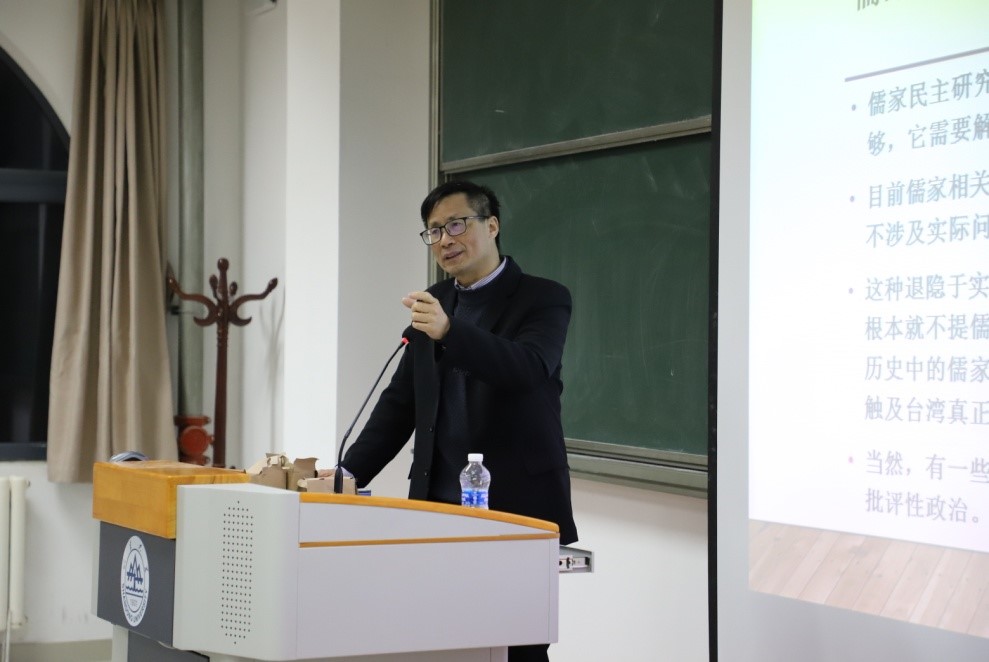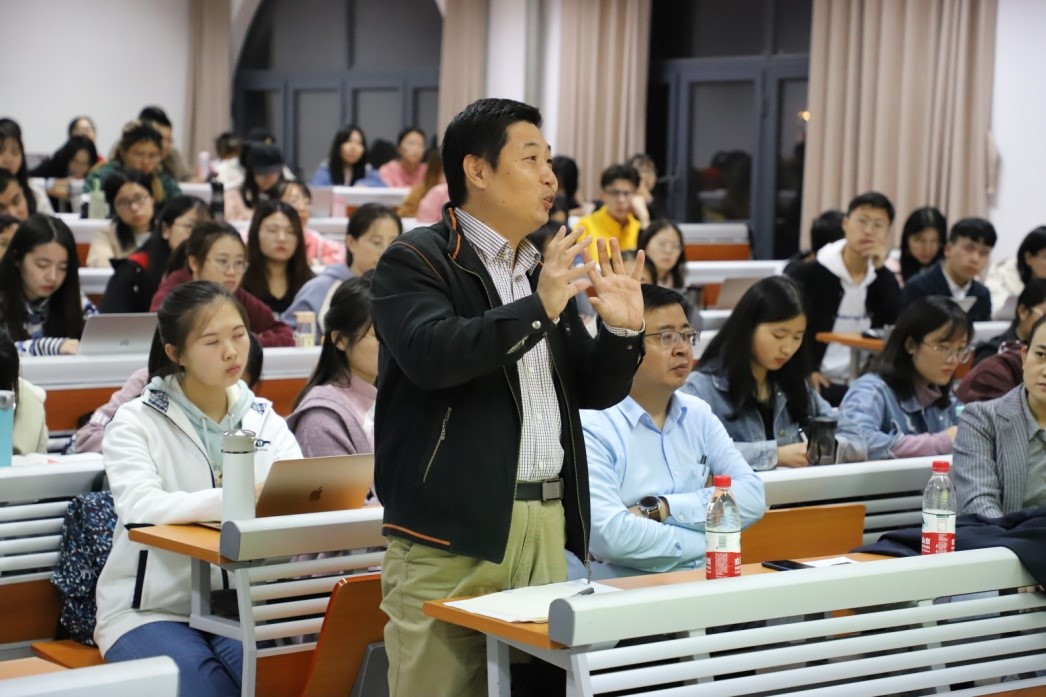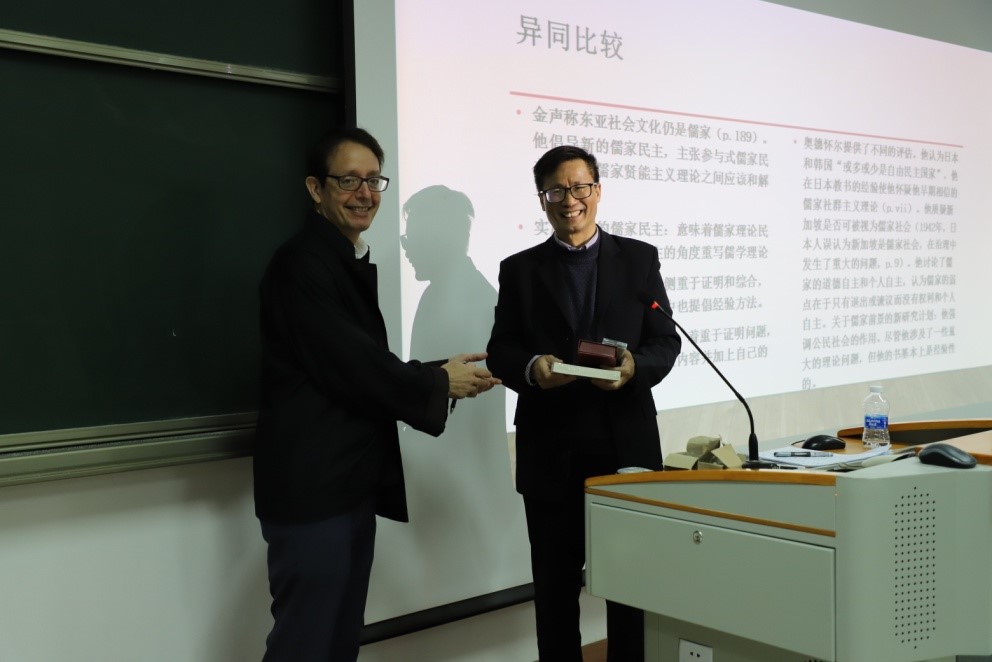On October 15th, He Baogang, the principal of the Department of International Relations at the College of Humanities and Social Sciences in Deakin University was invited to give a lecture at the Qingdao campus entitled "Whither Confucian Democracy Studies". The lecture was hosted by the School of Political Science and Public Administration, and moderated by Professor Daniel A. Bell, Dean of the School of Political Science and Public Administration. Many teachers and students participated in the lecture.

Before the start of the lecture, Professor He Baogang introduced the topic to the audience. First of all, he started from the related works of western Confucian democracy by expounding the new contributions of western research to Confucian democracy since modern times. Then he compared the two works with different views to show the major achievements and deficiencies of Western Confucian democratic research. Finally, he indicated how to overcome the above shortcomings in the research under discussion.
How to draw the changes and evolution of Confucian democracy research from the works? In order to vividly illustrate this point, Professor He Baogang showed the audience a series of researches on Confucian democracy, from the anti-democracy of Confucianism during the May Fourth Movement, to the compatibility of Confucianism and democracy, and to the hybrid model of Confucianism and democracy. The research has undergone relatively obvious changes.
Later, Professor He selected two books, "Democracy after Virtue: Confucian Democracy Leading to Pragmatism" by Jin Shengwen and "Confucianism’s Prospects: A Reassessment” by Shaun O’Dwyer for comparative analysis. In terms of new developments and new contributions, in his work, Jin Shengwen seeks a Confucian democratic theory based on norms, which is not subject to the traditional Confucian virtue monism; Shaun O 'Dwyer rejects Confucian democracy in his book, and he puts forward thath the means of response to individualism, collective rights, communities and customs are the problems that Confucian democracy needs to deal with. The differences between research methods and democratic attitudes to Confucianism are the biggest differences between the two works; English writing and the lack of normative claims are the common ground and the shortcomings of the two.

Therefore, Professor He raised a question: Where are Confucian Democracy Studies? After elaborating on Jin Shengwen's and Shaun O ’Dwyer's claims, Professor He put forward his own views: promoting the globalization of Confucianism, exploring the use of Confucian democracy in regionalism, and taking local issues as the guide. Professor He concluded his lecture after elaborating on the "progressive Confucianism" of An Jingru, an outstanding scholar. During the Q&A session, the audience inquired on the applicability of Confucian democracy and the universality of Confucian morality. Professor He answered and interacted with the teachers and students. The atmosphere was amicable and the lecture was successfully concluded.

Prof. He Baogang received his Ph.D. from the Australian National University in 1993 and is currently the director of the Department of International Relations at Deakin University, Australia. He is widely known for his work in Chinese politics and China's democratization, especially in China's deliberative democracy, and deliberative democracy in Asian politics including Asian regionalism, federalism, and multiculturalism.